Can you wash towels and sheets together? The great laundry debate
11th Jun 2025
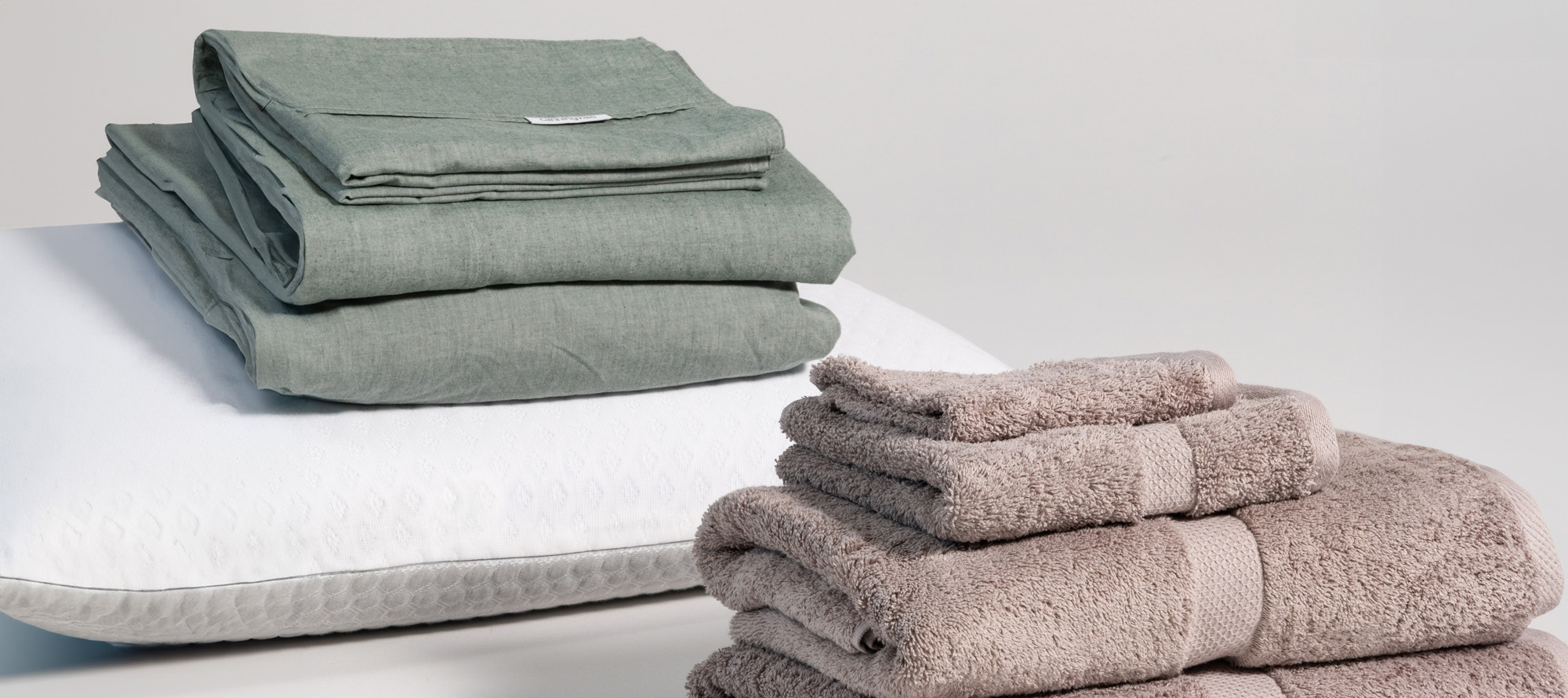
Let’s settle one of the internet’s most heated laundry debates: Can you wash towels and sheets together? It sounds like a time-saving hack – chuck it all in, press go, job done. But is it secretly sabotaging your softest stuff?
Here’s what you really need to know, plus some simple laundry tips to help your towels and bedding stay fresh, fluffy, and feeling their best:
Should You Wash Towels and Sheets Together?
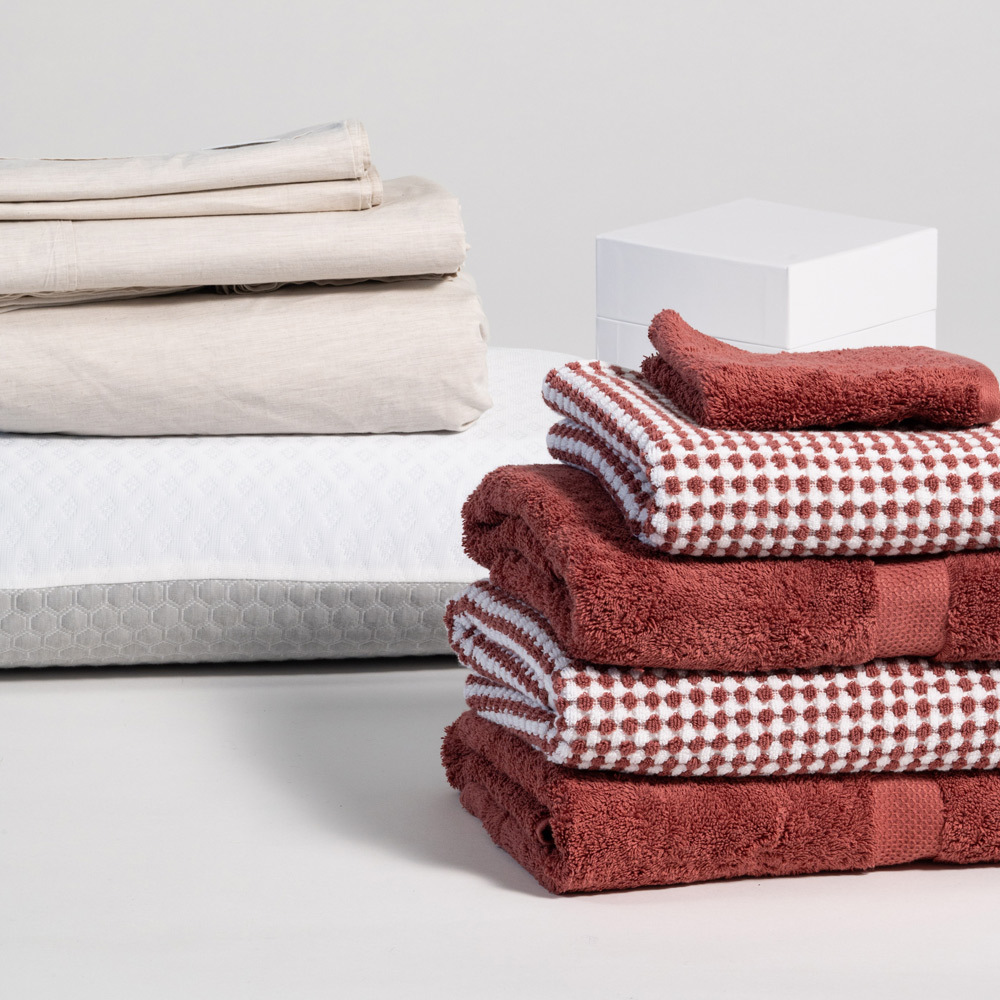
Short answer: not really – and here’s why.
Towels and sheets might live together in the linen cupboard, but they have totally different personalities in the wash. Towels are bulky and super absorbent, which means they take longer to dry, and their texture can act like a loofah on your sheets. That friction can wear down delicate fibres and ruin the soft, smooth finish you love.
Sheets, on the other hand, are lighter, often made from finer materials (like our cotton sateen or bamboo-rich blends), and are prone to tangling or getting twisted up when mixed with heavy items like towels.
Our Picks
What Happens When You Wash Towels and Sheets Together?
Here’s what can go wrong when washing towels with sheets:
● Increased wear and tear: The rougher texture of towels can cause pilling and friction damage to your sheets
● Longer drying times: Towels retain more water, so everything in the load ends up taking longer to dry (or comes out damp)
● Poor cleaning results: towels can get trapped in sheet bundles, meaning they don’t get fully cleaned or rinsed
So while yes, technically you can wash towels and sheets together, it’s not the best way to care for them, especially if you’re investing in quality and hoping to get the longest life possible out of your linens.
Our Picks
Can Bacteria Transfer Between Towels and Sheets?
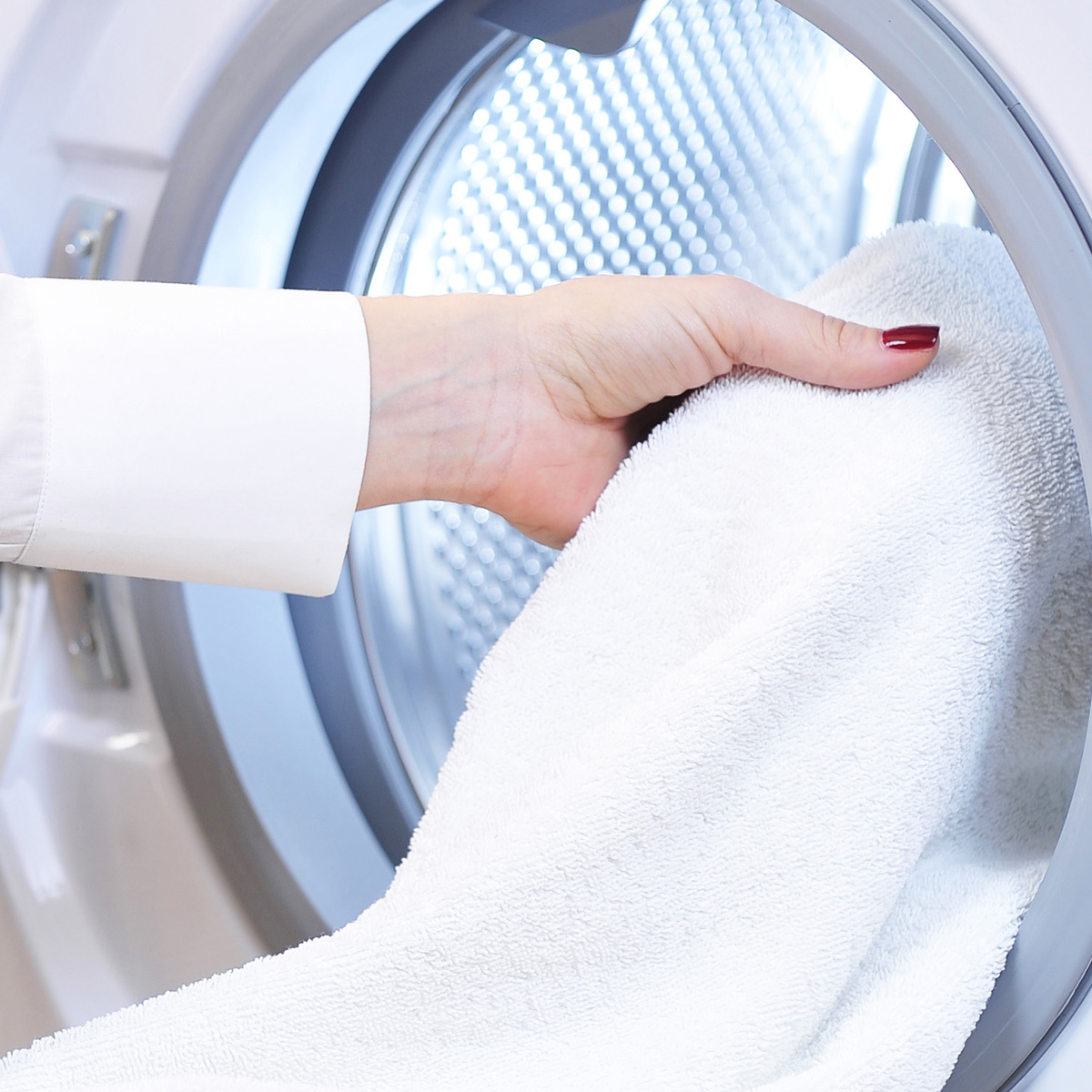
Short answer: yes – and it’s not pretty.
Towels are designed to absorb moisture, which also makes them a breeding ground for bacteria, mildew, and body oils if they’re not washed regularly or properly dried. When you wash them with your sheets, there’s a chance you’re spreading those bacteria around, especially if you're using a cool wash cycle that doesn't kill germs effectively.
This is particularly important if you have sensitive skin, allergies, or are trying to maintain a cleaner sleep environment. Keeping towels and sheets separate means you can wash each at the right temperature – warm for towels to sanitise, and warm or cold for sheets to protect the fibres – without compromising on hygiene or fabric integrity.
Lint Transfer Is Real (And Really Annoying)
Towels naturally shed lint in the wash, especially when they’re new. When you wash them with your sheets, that lint has nowhere to go but straight onto the lighter, smoother fabric.
This not only makes your sheets look less than fresh, but can also affect their softness and breathability over time. Plus, lint buildup in your washer or dryer can lead to maintenance issues later on. Another good reason to keep towels and sheets in separate loads? No more lint-covered linen.
How to Wash Towels and Bed Sheets Properly
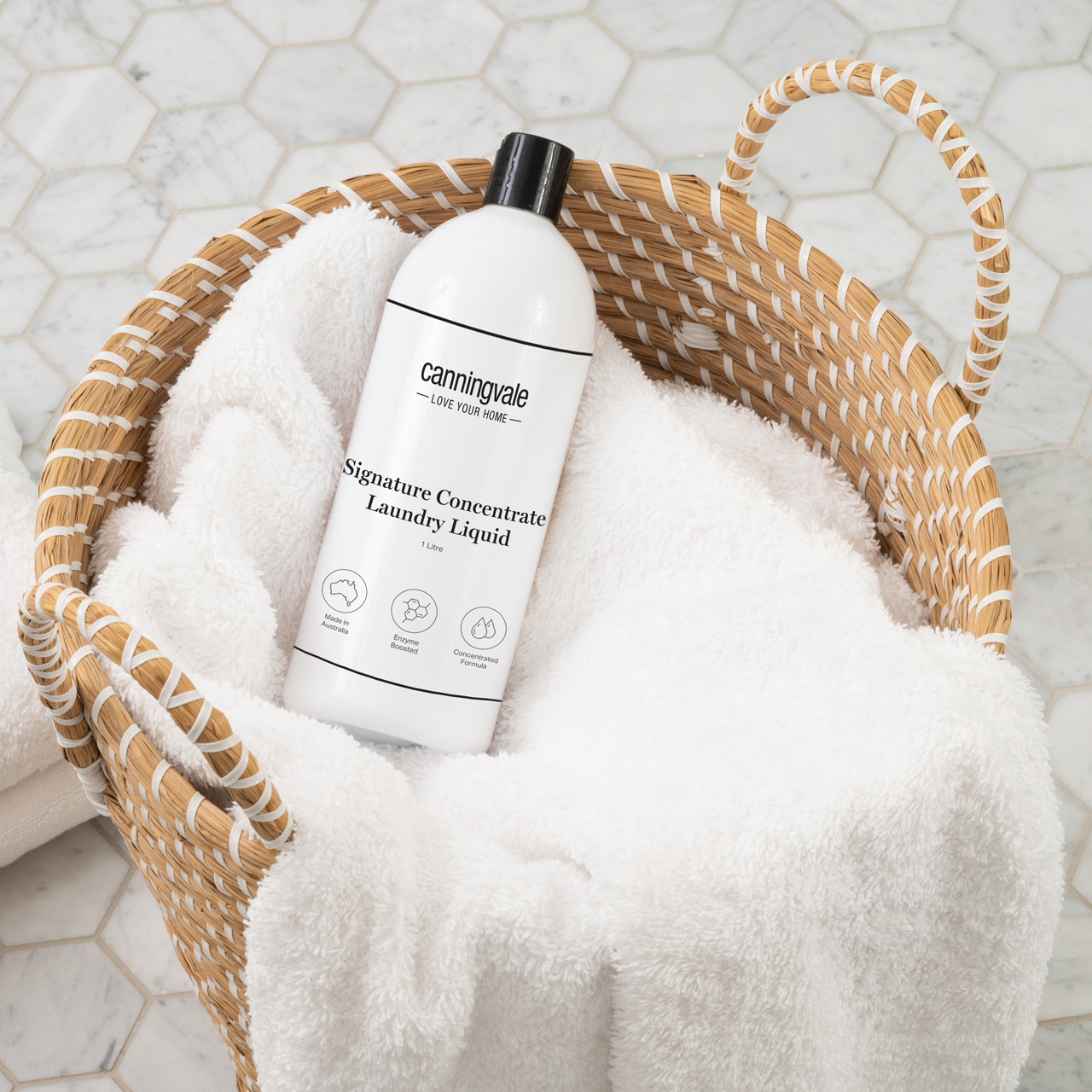
Want to keep your linens looking fresh and feeling luxe? Follow these laundry tips from our Canningvale experts:
1. Wash Towels and Sheets Separately
This one’s the golden rule. Separate loads = better clean, less friction, and happier fibres, meaning longer-lasting sheets and towels. Trust us – your sheets (and bank balance!) will thank you in the long run.
2. Use a Gentle Detergent
Your sheets and towels deserve a bit of TLC – and that starts with what you wash them in. Harsh detergents packed with chemicals can break down fibres over time or cause product buildup, making your linens feel rough and wear out faster. A mild detergent keeps your sheets and towels looking newer for longer, but even a gentle detergent can do more harm than good if you go overboard with it.
Choose a gentle, natural detergent, like Canningvale’s Signature Concentrate Laundry Liquid, and stick to the recommended amount (less is more!)
Our picks
3. Avoid Fabric Softener
It might sound counterintuitive, but softener actually reduces a towel’s absorbency, and can ruin the temperature-regulating qualities and breathability of your sheets by unnecessarily coating the fibres. Instead, add a dash of white vinegar every few washes to keep them soft and fresh.
4. Don’t Overload Your Machine
Stuffing everything in might seem efficient, but it means poor water circulation, more friction, and a half-hearted clean. Give your laundry some breathing room and reap the clean results!
Pro Tip: Want to cut down drying time and keep your fabrics soft naturally? Canningvale’s Wool Dryer Balls are a simple swap that help separate your laundry as it tumbles, reducing static cling as well as creasing and wrinkling. Simply toss in the dryer with your wet laundry for a durable and reusable drying hack.
Our picks
5. Choose the Right Settings
Use a warm cycle for towels to kill bacteria and remove body oils. Sheets are usually fine on a warm or cold wash – just follow the instructions on the care label.
Pro tip: Washing delicate items like Canningvale’s Beautysilks pillowcases? Pop them in a delicates bag to avoid snags and stretching. This keeps the silk fibres smooth and helps it last longer.
Our picks
Make It a Self-Care Moment
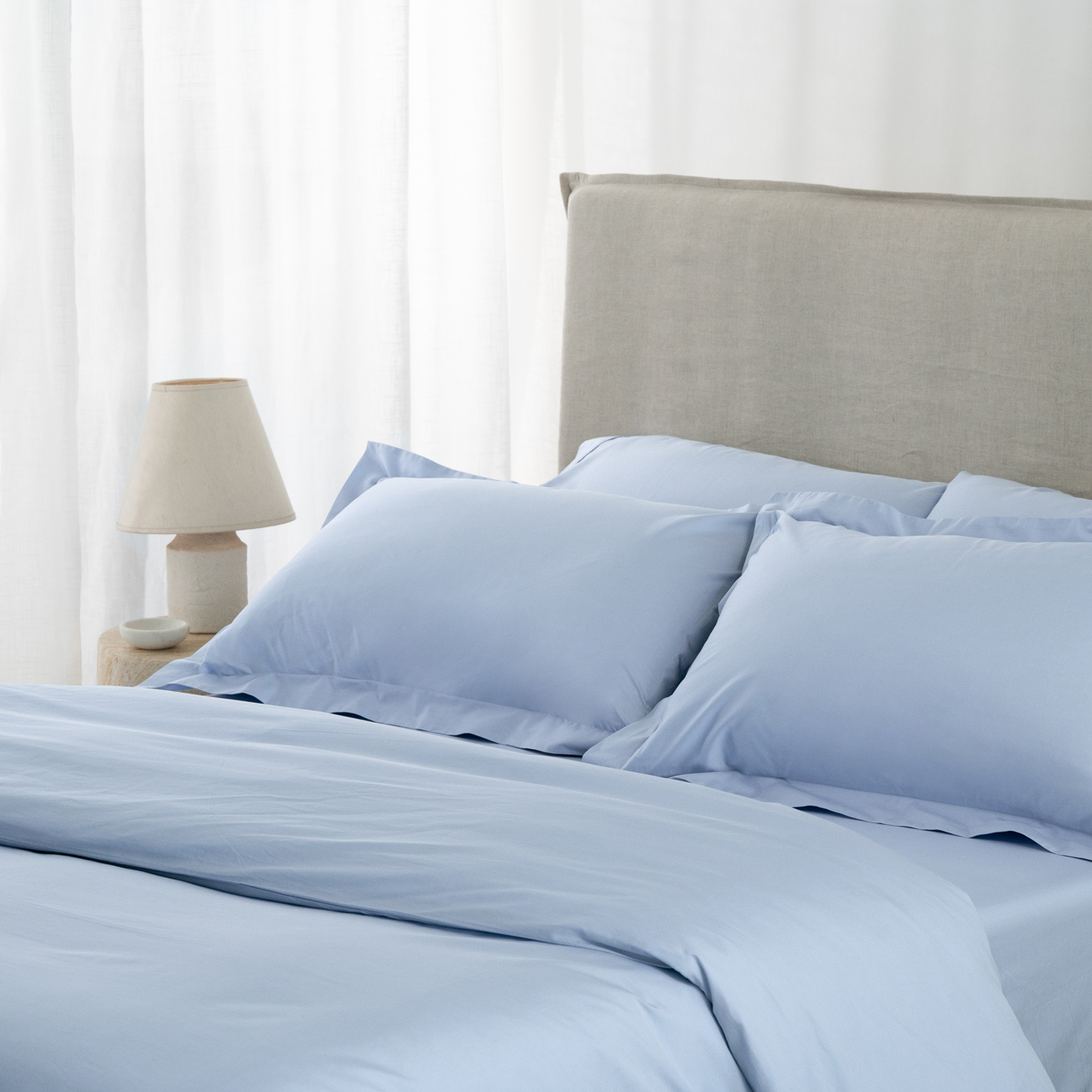
Laundry doesn’t have to be a chore. When you invest in beautiful, long-lasting pieces – like Canningvale’s Bamboo Rich Sheet Sets, Vintage Softwash, or our plush, absorbent Egyptian cotton towels – washing them properly becomes a form of care, not just another thing on the never-ending to-do list.
Our picks
So, can you wash towels and sheets together? Technically, yes. But should you? Not if you want to keep your linens looking and feeling their best. Washing them separately helps protect delicate fibres, maintain softness, and get the longest possible life out of your favourite sheets and towels.
Give your towels and bed sheets the TLC they deserve with proper washing routines — and make your laundry day a little less ‘meh’ and a lot more satisfying.

 Bedroom Clearance
Bedroom Clearance







 Australian Dollar
Australian Dollar
 New Zealand Dollars
New Zealand Dollars
 US Dollars
US Dollars
